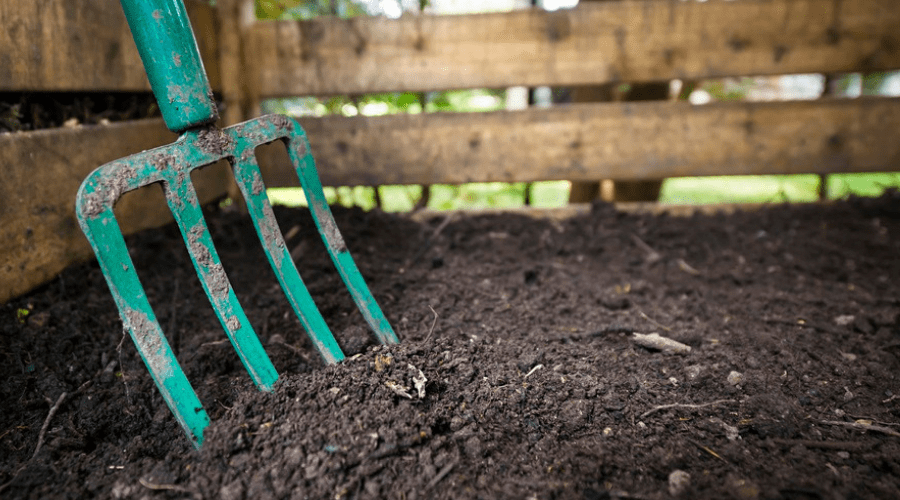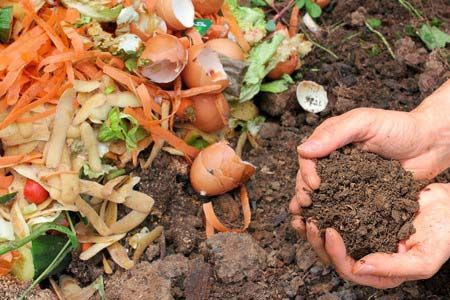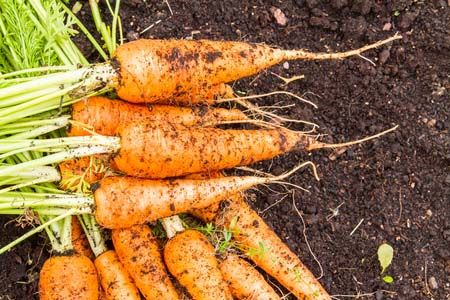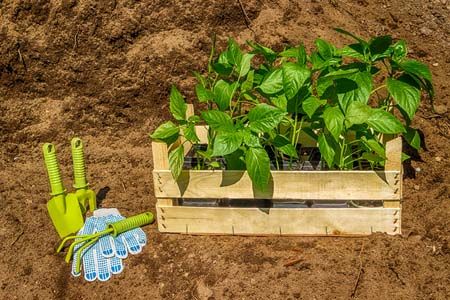Are you struggling to grow plants in bad soil? Is your backyard full of clay or sand? If you’ve got bad ground in your garden then you might be researching ways to improve it. We all know that getting the right mix of nutrients in your soil is the best way to make your flowers thrive.
But which is the best product to use? Compost or topsoil? There are pros and cons to both and there are also better times to use one product over the other.
We’ve put together everything you need to know about what to use and when to make sure you get the best from your garden.
COMPOST VS TOPSOIL COMPARISON TABLE
|
Compost |
Topsoil |
||
|---|---|---|---|
|
Pros |
Cons |
Pros |
Cons |
|
Full of nutrients to enrich your garden |
Needs a large bin that takes up space |
Great for creating new gardens |
Have to buy |
|
Doubles as mulch |
Takes a while to make |
Great for leveling out a lawn |
Certain kinds are not screened for contaminants |
|
Saves landfills |
Unpleasant smell |
Helps eliminate weed |
|
WHAT IS COMPOST?
Compost is made from food scraps, vegetable peelings, dried leaves and even paper or cardboard. These materials are mixed together in a compost bin or put into a heap outside in the garden and left to rot.
Pungent Odor
As the compost materials are usually leftover food or kitchen scraps, it can be a smelly and unpleasant process. The compostables can take months to break down completely and leave you with compost meaning it is definitely not a fast way to get nutrient rich soil for the garden.
Using Worms
You can use worms to speed this process up, a process called vermicomposting, but most experts still say it takes around three months to get your first good batch.
Using Heat
“Hot” composting, where a bin is insulated and used to trap heat, can speed up the composting process but this again will take a lot of work mixing and adding the right balance of materials.
WHAT IS TOPSOIL?
Topsoil is literally the “top” of your soil which is high in nutrients and organic materials. You can buy it in bulk from garden centers.
It comes in different types but it is mainly just soil dug from other patches of land or gardens which has either been sifted through to remove rocks, debris and seeds or left as it is.
FACTORS TO CONSIDER WITH COMPOST
Compost is great for gardeners as it is full of nutrients and can be used for pot plants, flowerbeds and any plants inside or outside. It can be added to fruit and vegetable plants, flowers and trees. When used properly, compost can be a brilliant mulch which protects the base of trees and shrubs as well as keeping moisture in these areas between watering.
YOU'RE SAVING THE ENVIRONMENT
The biggest benefit of compost is of course that you are diverting green waste from landfill. Composting is brilliant for taking vegetable scraps and other kitchen waste out of your general waste bin and putting it to good use in the garden. You can also add dried leaves and twigs which helps to keep your garden clear.
TAKES UP A LOT OF SPACE
A problem with compost is that you need space to make it. If you’re in a flat without a garden you can find this problematic as you might not have the room to store compost. You can get compact kitchen compost bins which will at least divert some of the green waste from landfill. The downside of this of course is the smell and you may want to invest in charcoal filters or a similar system to prevent the compost bin smelling. And even if you have a garden, a compost bin might be too bulky or difficult to site.
FACTORS TO CONSIDER WITH TOPSOIL
KNOW WHICH TYPE YOU NEED
There are three types of topsoil which is something to be aware of. The premium grade has been screened and should have no weed seeds and will be full of good, rich soil. The general purpose is the choice for new beds and borders as well as creating new lawns as the coarse texture is best for grass. The economy grade is unscreened.
NO GUARANTEE OF QUALITY
With topsoil, you have to buy it in and there is no guarantee that it will not contain disease or weed seeds so you are taking a chance.
USES OF COMPOST
There are lots of different uses for your compost when it has finally matured and is ready to use. You can spread it as mulch, mix it in with your soil to improve quality, water down compost tea as a liquid fertiliser or even just spread it onto an aerated lawn.
Using compost as mulch is fairly straightforward. Treat it the same as any other mulch and create a two or three inch layer on top of your flowerbeds once or twice a year.
If your soil needs improving, adding compost can help. Just dig it through your soil down to about four inches.
MAKING TEA
A compost tea, made from the liquid collected as your compostables break down, can be diluted with water and used in a watering can to shower your plants with goodness. If your compost bin doesn’t have the ability to collect tea separately, just add a shovel full of compost into a bucket with water and then drain off the water to use.
Stab your lawn with a fork to inject little holes and aerate the soil before sprinkling over a handful of compost.
USES OF TOPSOIL
STARTING NEW
Topsoil is great to use when you are creating a new flowerbed or making raised beds or for topdressing weak grass. It can also be used as a base to improve existing lawns or to create an area for a new lawn.
TO IMPROVE EXISTING SOIL
In a garden with poor quality soil, or a new home that has been built on a clay-based or sand-based ground, no amount of compost will fix the problems you will have so you will need to replace the natural topsoil which has been removed during building with topsoil. You can then sow grass seeds straight on top or lay turf.
WHICH IS BEST FOR YOU?
So if you’re looking at compost or topsoil, then compost wins hands down. Sure it might be more difficult to create and it would be easier just to pick up a bag of soil from the store but it is much better for the environment – and your plants! Once your compost has rotted down you have not only saved your green waste from landfill but you have created a disease free, weed free soil which can be used everywhere and for every purpose. The compost you create is free and will help any type of plant thrive.




